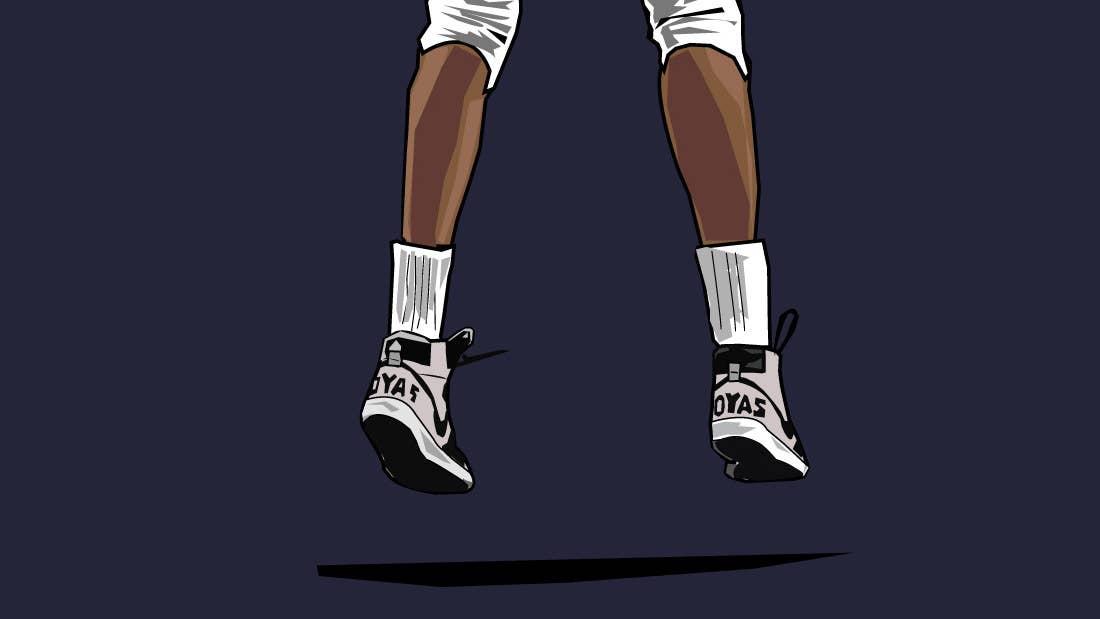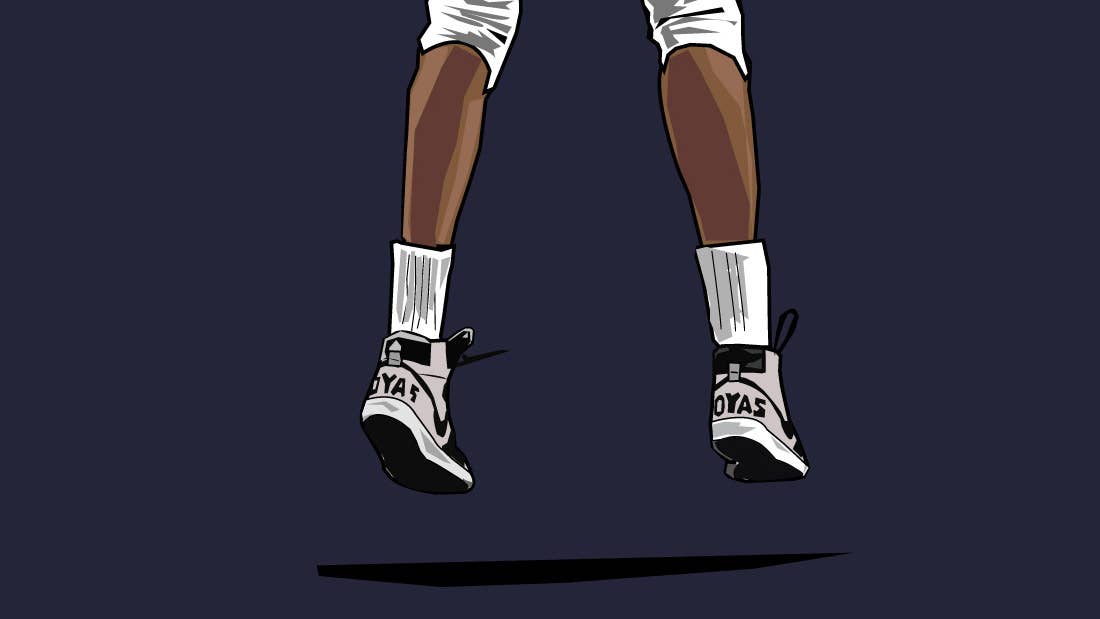
Illustrations by JSNJAY
While most of our influences these days tend to come from the NBA level, or even non-athletes, college basketball has had its share of memorable sneaker moments. Through NCAA teams' on-court accomplishments or simply just their cultural impact, a handful stand out for what they meant to sneakers. In honor of this week's start to March Madness, here are the five most influential NCAA teams, from a footwear perspective.
North Carolina Tar Heels: 1981-1982

Coach Dean Smith’s relationship with Converse began in the early 1960s, when he was asked by Chuck Taylor (the Chuck Taylor) to have his players wear All Stars on the court during a dinner meeting. For 30 years, Smith was staunchly loyal to the brand, outfitting most of his teams in the famous white and light blue colorways. Perhaps his greatest squad was the 1982 Tar Heels, which featured an exciting freshman by the name of Michael Jordan. The first in a long line of clutch moments for Jordan took place in the National Championship game, when he clinched the title with a game-winning left baseline jumper while wearing the Pro Leather. While UNC Basketball’s relationship with Converse played a role in the brand’s success for several decades, the program’s biggest sneaker accomplishment is spawning the greatest endorser of all-time.

georgetown Hoyas: 1984-1985

The Nike Dunk was introduced in 1985 as Nike’s original team shoe. It was worn that year by high-profile programs like Kentucky, Michigan, and Syracuse, but one of Nike’s biggest teams was notably absent from that lineup—because they had their own model. The Georgetown Hoyas wore the Terminator, essentially a signature model for their entire team, all the way to the NCAA finals in 1985, complete with their own “HOYAS” font on the heel. While the Patrick Ewing-led squad ultimately lost to Villanova in the finals, the team and the Terminator model have been forever linked as one of the most memorable sneaker partnerships in basketball history.

University of Michigan Wolverines: 1992-1993

Despite never actually winning an NCAA Title, the Fab Five-led Michigan Wolverines have gone down as one of the most memorable and influential college teams in the history of the sport. By bringing off-court aesthetics to the on-court game, the team is more remembered for its style than its NCAA Finals collapse. And their sneakers played a major role, with the word “Nike” becoming almost synonymous with their run. Along with their somehow controversial black socks, Jimmy King, Jalen Rose, Chris Webber, Ray Jackson and Juwan Howard could be seen lacing up Air Flight Huaraches and Air Force Maxes—popular shoes turned classics—thanks to their Fab Five association.

University of Arizona Wildcats: 1996-1997

When the 1997 Arizona Wildcats won the NCAA Title, there was no such thing as #SoleWatch, Instagram and Facebook were yet to have been invented, and most people who had the Internet accessed it via dial-up connections. Yet there was Mike Bibby, stunting in Foamposites as if the world was watching. In contrast to team-based models like we frequently see with colleges, the ’97 Wildcats showcased their individuality with the hottest sneakers of the moment, such as the Air Jordan 13, Zoom Flight 5, Air Adjust Force, and Air Max Uptempo 3. If there was ever a team ahead of its time when came to footwear, it was the 1997 NCAA Champs.

Michigan State Spartans: 1999-2000

Now entrenched as one of Nike Basketball’s powerhouse programs, Michigan State may actually be best known for its 1999-2000 championship run in Reebok. Jason Richardson and Morris Peterson were standout names on the team, but point guard Mateen Cleaves was the face of the group and the player that viewers were drawn to throughout the tournament. Some Spartans wore the Answer 3, but majority of the team, including Cleaves and Richardson, hit the hardwood in a white and pine green Question. In winning the title, the Spartans gave the iconic sneaker its most important non-Iverson moment, which was celebrated with a 15th Anniversary re-release in 2015.


